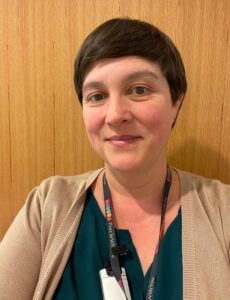
I believe in the capacity for change. That even though some truths seem eternal, and some ships seem like they will forever be headed in that same wrong course, they are still able to change direction.
When I was 19, fresh out of highschool and angsting about what to do with the rest of my life, I read an article that said that who you are at 14 is basically who you will be for the rest of your life. If you don’t have good exercise habits now, you never will. If you don’t already speak another language, there’s no real point in trying. If you’re an angry person, you’ll die angry person. If you struggle in social situations, you’ll always feel kind of lonely.
Looking back, it was an awful thing for a lost teenager to read. The affirmation that I would always feel as misunderstood, and depressed, and lost as I did at that moment. That the character flaws I saw so prominently when I looked in the mirror would be with me for the next 50+ years, with no new ingredients ever added to the pot.
20-something years later, I am relieved to say that’s not true. Or at least, I do not believe it to be the whole truth. Maybe the pieces of that lost teenager are still in there, but they are now being cared for by other parts that are wiser, quieter, more at home in my own body. Maybe those parts, too, were always there. Maybe we each contain multitudes, the ingredients for an infinite number of possibilities, depending on what we choose to include.
We are in a season of Lent, a season of saying that just because things are the way things are, doesn’t mean its the way they have to be. Just because we’re the way we are doesn’t mean that we have to stay that way. A call to repentance— to shift direction and return back to the call of love. A reminder that even if the world seems more hopeless and despairing than ever, change is still possible.
As a palliative care chaplain, I work with some of the sickest people in our hospital. People who are often told that the course for their lives has already been plotted out and it will be short, and painful, and cruel.
Very often, my patients will ask me to pray for a miracle, believing what the doctors have said: that it would take a miracle— an act of God— to change this picture. And so I do, in spite of what the doctors I work with tell me the clinical picture looks like.
Years ago, my mentor and friend, Rev Jim Mitulski— shaped by his own decades of ministry and personal medical journey— taught me that when people ask me to pray for healing I should just do. “Don’t check the chart first,” he would say, “you’re the chaplain, not the doctor.”
I have prayed for miracles for a lot of people who ended up dying far too soon, and far too horribly. But in that journey, I have also watched them— and myself— be surprised by the miracles that we witnessed without even having known how to pray for them. Someone’s son being unexpectedly released from prison in time to make it to bedside. A person who had, by their own account, spent decades angry and fearful and who was in their last weeks suddenly able to tap into a brave and more loving version of themselves. Ancient resentments between siblings or spouses be suddenly healed.
And, I have seen, in my 10 years of walking hospital floors, a few of those medical miracles that I prayer for. People who were told they wouldn’t leave the hospital walk out singing. A boy whose mother was told he’d never talk again being able to tell her he loves her.
When families ask me “have you seen a miracle like that? Do they happen?” I have to honestly answer yes, I’ve seen a few. And I have also seen many people, just as deserving of that sort of miracle not get one. I do not know how to make sense of that math.
We pray for God to change things, knowing that miracles are anything but a certainty. Knowing that the odds are stacked in the favor of despair and grief. But knowing that even in the most unchangeable situations, God has shown us that unexpected things can still happen.
We live in a moment when despair and fear seem to have won out. When it is easy to doom scroll late into the night and then awake with a hard rock of dread in your stomach. When the existential threats of climate change, of war, of the hatred and violence that we humans submit each other to, seem unstoppable. When it seems like it would take a miracle to turn that ship.
But this Lent, I believe in miracles. Not just the miracles recorded in scripture and that we are preparing to re-live this Easter Season, but the miracles of us. The miracles of how I have seen the Holy take the old bones of despair and breathe new life into them. The miracle of how each one of us is capable of growth, of change, of repentance.
Even me.
Even us.
Even now.
Rev. Christine Haider-Winnett, a valued member of the PSR Alumnx Council, shared this thoughtful reflection at our most recent Council meeting as part of our ongoing “This I Believe” series. This series invites Council members to reflect on the beliefs, experiences, and values that continue to shape their lives and ministries since their time at PSR. Christine’s reflection is attached for your reading.
Christine is an ordained Roman Catholic Womanpriest and a Commissioned and Endorsed Minister with the Federation of Christian Ministries. She holds an MDiv from PSR, a BA in Peace and Global Studies from Earlham College, and a Certificate in Women’s Studies in Religion from the GTU. She lives in Davis, California, with her husband Alex (a UU minister), their preschooler, and two cats. Christine currently serves as a Palliative Care and Inpatient Hospice Chaplain at UC Davis Medical Center and also leads Via Sophia Ministry, offering inclusive Catholic rituals and spiritual support.
We’re deeply grateful for Christine’s voice, leadership, and presence on the Alumnx Council, and want to especially thank her as she prepares to wrap up her term this May.
For other reflections in the series, you can visit the PSR website here: https://www.psr.edu/alumnx/this-i-believe/.
